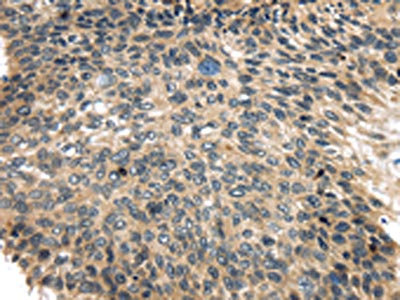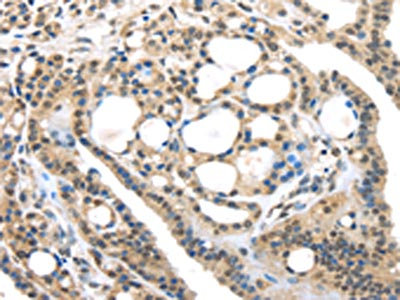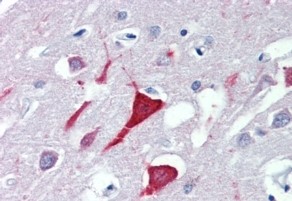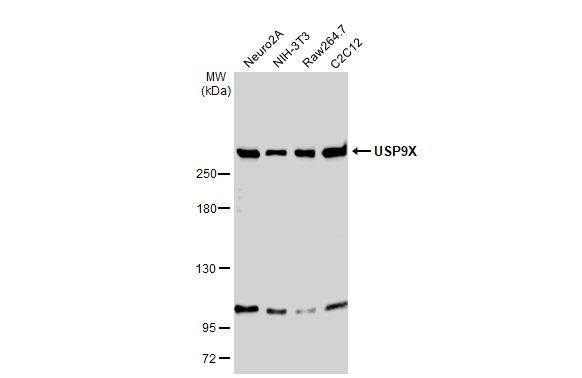
The image on the left is immunohistochemistry of paraffin-embedded Human esophagus cancer tissue using CSB-PA120935(USP9X Antibody) at dilution 1/35, on the right is treated with synthetic peptide. (Original magnification: x200)
USP9X Antibody
CSB-PA120935
ApplicationsELISA, ImmunoHistoChemistry
Product group Antibodies
ReactivityHuman, Mouse
TargetUSP9X
Overview
- SupplierCusabio
- Product NameUSP9X Antibody
- Delivery Days Customer20
- ApplicationsELISA, ImmunoHistoChemistry
- CertificationResearch Use Only
- ClonalityPolyclonal
- ConjugateUnconjugated
- Gene ID8239
- Target nameUSP9X
- Target descriptionubiquitin specific peptidase 9 X-linked
- Target synonymsDFFRX, FAF, FAF-X, FAM, MRX99, MRXS99F, XLID99, hFAM, ubiquitin carboxyl-terminal hydrolase 9X, Drosophila fat facets related, X-linked, deubiquitinating enzyme FAF-X, fat facets in mammals, fat facets protein related, X-linked, fat facets-like, X-linked, probable ubiquitin carboxyl-terminal hydrolase FAF-X, ubiquitin specific protease 9, X chromosome (fat facets-like Drosophila), ubiquitin thioesterase FAF-X, ubiquitin thiolesterase FAF-X, ubiquitin-specific processing protease FAF-X, ubiquitin-specific protease 9, X chromosome
- HostRabbit
- IsotypeIgG
- Protein IDQ93008
- Protein NameUbiquitin carboxyl-terminal hydrolase 9X
- Scientific DescriptionThis gene is a member of the peptidase C19 family and encodes a protein that is similar to ubiquitin-specific proteases. Though this gene is located on the X chromosome, it escapes X-inactivation. Mutations in this gene have been associated with Turner syndrome. Alternate transcriptional splice variants, encoding different isoforms, have been characterized.
- ReactivityHuman, Mouse
- Storage Instruction-20°C or -80°C
- UNSPSC41116161







